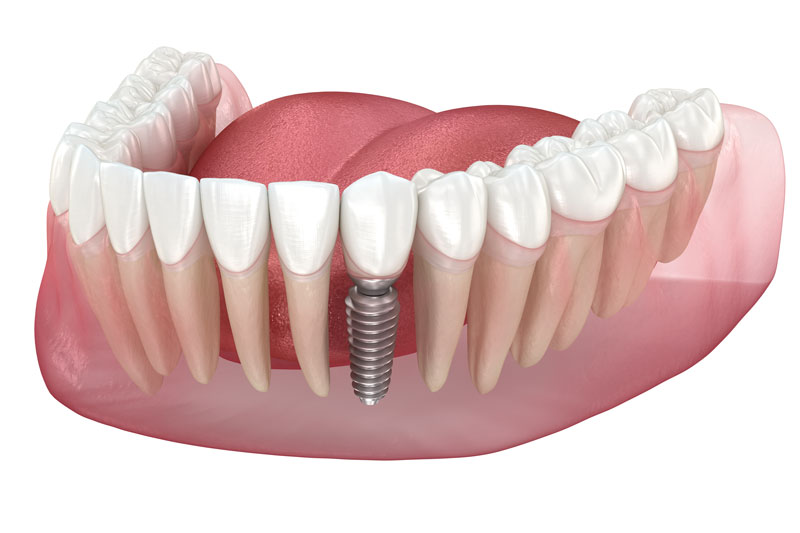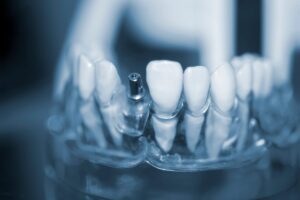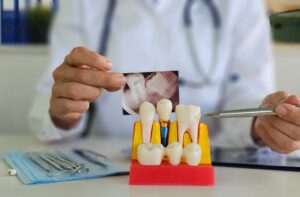Many people type fix dental implants near me when a dental implant or its crown starts causing pain, moves, or looks wrong. This short guide explains common problems, what happens when you call a clinic, simple steps you can take at home, and how to choose the right provider to fix dental implants near me.
Common reasons people need to fix dental implants near me
Loose implant or loose crown
A loose feeling can come from a loose abutment screw, a broken screw, or a crown that no longer fits. You might feel movement when chewing or a rocking sensation. This happens when connections loosen over time, when the crown cement fails, or if bone support around the implant decreases.
Infection (peri-implantitis)
Peri-implantitis is an infection around the implant that can eat away bone if untreated. Common signs include:
- Bleeding when brushing or probing
- Bad taste or persistent bad breath
- Swelling, redness, or pain near the implant
- Receding gum or visible implant threads
Infection can loosen the implant and lead to failure if not treated early.
Prosthetic wear or bite problems
Worn, cracked, or loose crowns and bridges cause chewing problems and can damage the implant or opposing teeth. A high bite or uneven forces can fracture prosthetics, bend screws, or cause pain. These issues commonly send people to search “fix dental implants near me.”
What to expect when you call to fix dental implants near me
Initial exam and imaging
Treatment options
- Non-surgical: professional cleaning, local irrigation, antibiotics, tightening screws, recementing crowns.
- Surgical: flap surgery to clean infected bone, bone grafting, or removing and replacing a failed implant.
- Prosthetic repairs: remake or repair of crowns, bridges, or full-arch prostheses.
The provider will recommend the least invasive option that solves the problem and reduces risk of recurrence.
Typical timeline and cost factors
Simple fixes like tightening a screw or recementing a crown can be done the same day. Treatments for infection, grafting, or implant replacement may take weeks to months because healing and lab work are needed. Cost depends on the type of repair, need for imaging or lab-made parts, whether bone grafting is required, and if a replacement implant is needed.
Immediate at-home steps and red flags before you can see someone to fix dental implants near me
Short-term care
- Stop chewing on the affected side.
- Rinse with warm salt water several times daily to keep the area clean.
- Take over-the-counter pain relievers as directed for discomfort.
- Maintain gentle brushing and flossing around the implant—avoid force on loose parts.
When to seek urgent care
Seek immediate care if you have severe pain, spreading facial swelling, fever, or if the implant is moving freely. These signs can mean a serious infection or failing implant that needs prompt treatment.
How to find the right provider to fix dental implants near me (and a light next step)
What to check
- Experience with dental implants and treating prosthetic or infection problems.
- Credentials such as surgical or prosthetic training and continuing education.
- Before-and-after photos of similar repairs and clear patient reviews.
- Transparent treatment plans and written cost estimates.
Questions to ask at your consult
- What is the likely diagnosis and treatment options?
- Are there non-surgical alternatives and what are the risks?
- What is the expected timeline, number of visits, and total cost?
- Do you offer a warranty or follow-up care for repairs?
Quick CTA
If you’re noticing movement, pain, swelling, or a bad taste, don’t wait. Schedule an exam to get a clear diagnosis and next steps to fix dental implants near me. Early care often saves time, money, and your implant.






